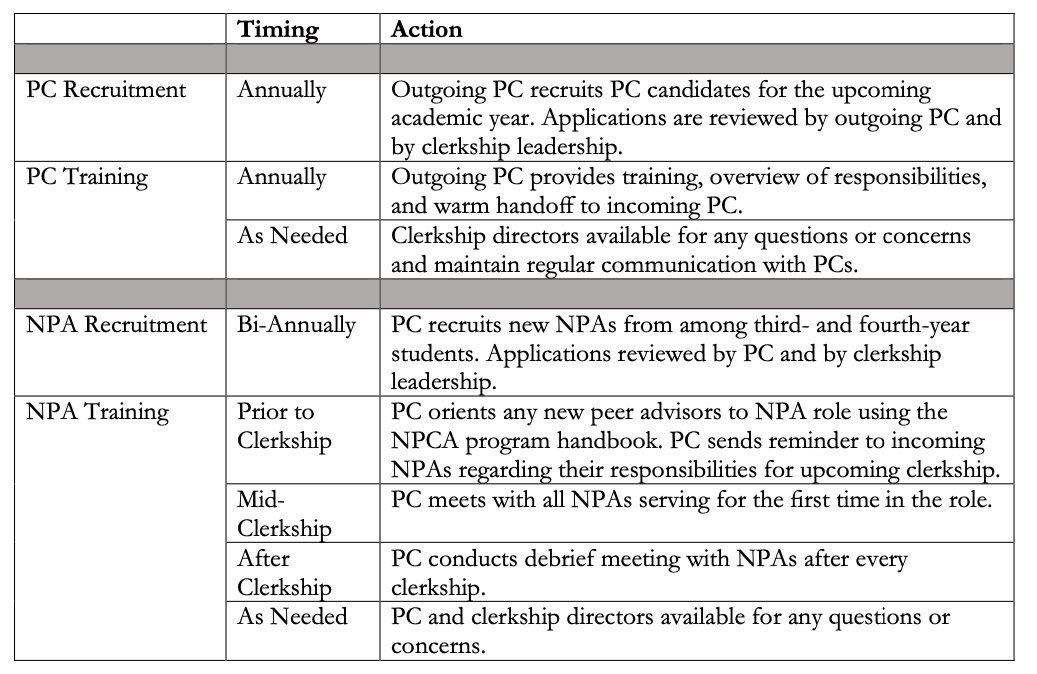Medical Education
Session: Medical Education 2
535 - Peers in Pediatrics: Enhancing Clerkship Experience with Near Peer Mentorship
Friday, May 3, 2024
5:15 PM - 7:15 PM ET
Poster Number: 535
Publication Number: 535.561
Publication Number: 535.561
.jpeg.jpg)
Mengting Qiu, MD (she/her/hers)
Resident Physician (PGY1)
Boston Children's Hospital, United States
Presenting Author(s)
Background: The core clerkship year presents numerous challenges for medical students as they enter new systems, join new teams, and balance clinical work with learning. Peer mentoring programs have been successful for pre-clinical students and residents; however, the role of peer mentoring in the clinical clerkship year has not been well-established.
Objective: To develop and assess the impact of a peer mentoring program for medical students completing the pediatrics core clerkship.
Design/Methods: The Near Peer Clerkship Advisor (NPCA) program was developed by senior medical students and pediatric clerkship directors (CDs) at Harvard Medical School. Interested third- and fourth-year medical students were recruited and trained by a senior medical student program coordinator (PC), with input from CDs. Primary responsibilities of near peer advisors (NPAs) include sharing advice with students through in-person, virtual, or email check-ins, and being available to meet with students on an as-needed basis. Care was taken in program design to facilitate sustainability, including development of training materials. Clerkship student feedback was solicited via an anonymous, voluntary post-clerkship survey.
Results: After an initial pilot, 5-7 students served as NPAs per academic year, fully staffing the program since January 2021. Each of 3 PCs had served in the NPA role, providing continuity and experience. From January 2021 to August 2023, the NPCA program served 415 students across 2 hospital sites. In the initial phase of program evaluation, 48 of 415 students (12%) completed a post-clerkship survey. 48% (23/48) sought help from their NPA at least once during their clerkship, 60% (27/45) felt that having an NPA improved their overall clerkship experience, and 76% (29/38) found their NPAs’ weekly emails helpful. Students also expressed appreciation for having an NPA as a resource regardless of whether they reached out to their NPA. Student questions to NPAs have included resources on specific topics, shelf study strategies, clerkship logistics, pre-rounding, and advanced elective planning.
Conclusion(s): A pediatric clerkship near peer advising program was successfully developed and maintained for almost three years. Most students who shared feedback felt that the program improved their overall clerkship experience. Next steps include exploring impacts of the program on clinical skill development, student wellbeing, and professional development for both students and peer advisors. As a result of this program, other clerkships at our institution have created or are exploring similar near peer advisor roles.

.png)
